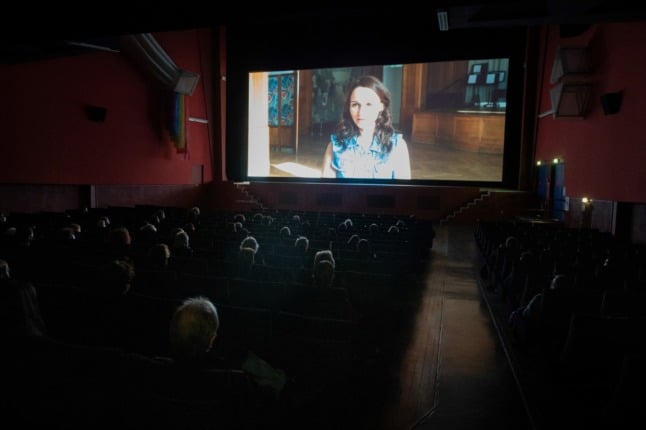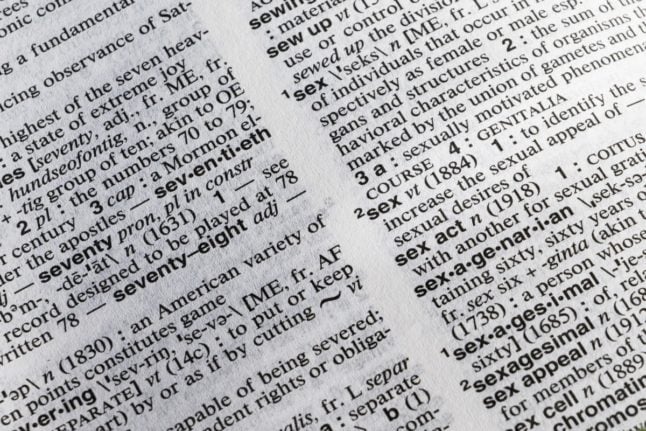The club offers English speakers who may not be fluent in French the chance to enjoy French cinema, by screening new releases with English subtitles to help viewers follow along.
Four recent French films are set to be shown in September alone, and there will be drinks beforehand so it’s a great opportunity to celebrate the return of cultural life in France while also meeting new people.
The health passport will be required for all events.
Friday, September 3rd
Passion Simple – Lost in Frenchlation is kicking off its autumn season with a drama about an obsessive love affair between a divorced professor and a mysterious, married Russian man. The film, from Franco-Lebanese director Danielle Arbid, is adapted from the novel of the same name by French author Annie Ernaux, and is a compelling portrait of female desire.
The screening will take place at L’Entrepôt cinema in the 14th arrondissement, with drinks at the cinema’s bar from 7pm, followed by the film from 8pm, and a Q&A with the director at 9:30pm.
Tickets are available online, and cost €8.50, or €7 for students and other concessions.
Friday, September 10th
Benedetta – Virginie Efira stars as a nun in 17th-century Italy who joins a convent and begins a love affair with another nun. The film, directed by Basic Instinct’s Paul Verhoeven, is loosely based on the story of real-life nun Benedetta Carlini.
The evening will begin at the Club de L’Étoile cinema at 7pm, with drinks and snacks – the event promises popcorn, cocktails, other drinks, and “movie-themed finger food” from Les Popcorn. The screening will follow at 8pm. Tickets cost €10, or €8 for students and concessions.
Saturday, September 18th
We – As part of the Champs-Elysées Film Festival, Lost in Frenchlation is screening Alice Diop’s We (Nous), a new documentary which traces the lives of people living in Paris and its suburbs, following the RER B train line.
The event will begin with cocktails, champagne and music on the rooftop of the Publicis Cinémas at 7:30pm, offering a view of the Arc de Triomphe, followed by the screening and a Q&A from 8:30pm. Tickets cost €30, or €25 if you book early, and that includes two alcoholic drinks and unlimited soft drinks.
Thursday, September 23rd
OSS 117: From Africa with Love – The latest installment of the OSS 117 spy spoof franchise premiered at Cannes earlier this year – its original French title is OSS 117: Alerte Rouge en Afrique Noire. Lost in Frenchlation describes the films as “a Gallic twist on James Bond by way of Pink Panther”, and they are hugely popular in France.
Drinks at the Luminor Hôtel de Ville cinema bar from 7pm; the film starts at 8pm. Tickets cost €10, and €8 for students and concessions, and are available online.
Full details of Lost in Frenchlation’s events can be found on their website or Facebook page. In France, a health pass is required in order to go to the cinema.



 Please whitelist us to continue reading.
Please whitelist us to continue reading.
I’ve just had a quick look at the Lost in Frenchlation website linked-to in the article. It looks like in-cinema screenings are only done in Paris, is that correct?
There is a (limited, when in France) on-line selection, with “the first one is free”, but I don’t see any information about costs, etc., after that first one. Apologies if that information is “obvious” (“easily” found), but the website seems to go for distracting presentation of pretty stuff rather than solid or easily-found information.
Thanks for any help and corrections!